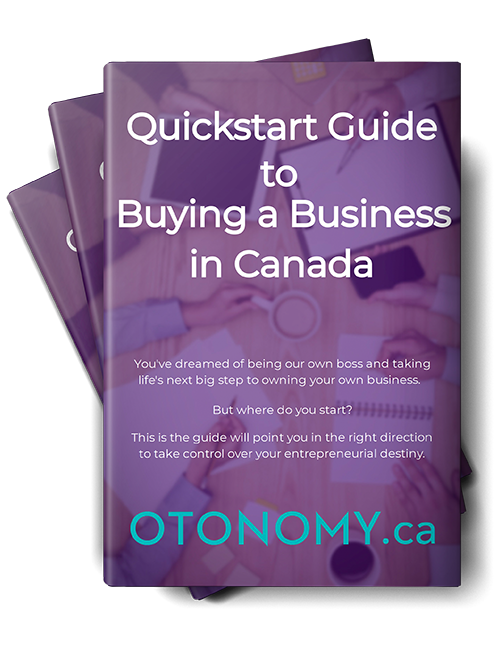Calculating the value of a business can be a challenging and complicated task. Since a business produces revenue by leveraging assets to provide customers with service, they are more than their parts’ simple sum. At the same time, setting an unrealistic price for your business with either make the business very difficult to sell or at worst, unsellable.
Though it’s a smart step to partner with a financial expert accredited in business valuation to estimate your business’s value, you can begin the process solo, too. In fact, online services like the PriceBuilder at Paratus Business Resources offer low-cost tools to help clarify your business value as a first step.
If you’re starting off with a search for “how to determine the value of my small business,” the following information can also help you navigate this exploratory phase.
We will explain several methods to evaluate a small business and give you some ideas on where to market your business. No matter what your business produces and sells, this basic advice will help you in succession planning.
How to Determine the Value of a Small Business
There are many different ways to assign value to a small business. We will review three common methods below.

1st Valuation Method: Liquidation Value
The liquidation value would be the current value of all of the business’ assets minus liabilities if the business were to be liquidated today.
Simply put, if you sold all of your business’ assets today and then paid off all of the business’ debts, the remaining amount would be your business’ liquidation value.
Liquidation value is a good number to have in your mind as a business owner. Having a high liquidation value means you can turn your business into cash even if you cannot sell it as a complete functional unit.
Liquidation value is easier to calculate for asset-heavy businesses. For example, a trucking company with paid-off equipment can assign a market value to the vehicles, add them together, and then deduct debts to determine the liquidation value.
However, if your business is more valuable because of its services and has minimal assets, liquidation value will not give you a very accurate idea of its worth.

2nd Valuation Method: Comparable Sales
The comparable sales method of business valuation assigns value to your business by determining the sale price of similar businesses that have sold recently.
To use this valuation method, you need to research recent business sales to see where prices have been. If you can find businesses similar to yours that have sold recently, their sale prices can give you an idea of your entity’s market value.
This valuation method may not give you the most accurate value for your business because it fails to consider your business’s unique aspects. You are also not aware of all of the different factors that influenced the sale of the business you are using as a comparison.
However, potential buyers of your business will likely have done this form of research when deciding what to offer you for your business, so it is a good idea to check out market values so you can prepare for these negotiations.

3rd Valuation Method: Multiples Method
The multiples method of business valuation takes a closer look at your business’ profitability. With this method, you determine how much profit your business can produce and use that figure to assign a value for potential buyers.
If you do not need to sell your business in a hurry, you will want to use this method to market your business. With the multiples method, you tell a story: how much money your business can make the buyer.
You will look back at your past financial statements, your current liabilities, and your short- and long-term projections to establish a value. If you know that your combination of assets and services can make the owner(s) wealthy, you need the figures to back up your value.
You do need to accept market forces when you value your business under this method. For example, if your business has performed well over the past five years, but your entire industry is currently doing poorly, this will negatively impact your projections and value.
Where to Sell Your Business
Determining where and how to sell your business can be just as challenging as determining your business’ value. We will explain three places where you can market your business.
Broker
A broker is an individual with expertise in arranging a deal between two parties. An example would be a real estate agent: this type of broker makes a living aligning buyers’ and sellers’ needs to optimize real estate sales.
A broker who can sell your business needs experience in your industry and knows how to sell businesses similar to yours. Please do your homework in vetting this individual as they will greatly impact your business’ sale.
You can use a broker for any business size, but they are best used for medium-sized businesses that are too small for investment banks. Remember, though, if you know your industry well, you may be the best sales broker for your business.
Marketplace
For many small businesses, the open marketplace is the best place to sell. You can take advantage of online platforms like Otonomy.ca to help market your business.
When you sell on the open market, you actively seek potential buyers and market the business yourself. For example, if you own a bakery and know many people would be interested in owning a bakery, you can reach out to them directly to check for interest.
Investment Banks
Investment banks are best for businesses with significant profits, typically measured in the millions of dollars annually.
It is important to consider profits instead of gross revenue. Many small businesses have large revenues but have surprisingly small profits due to outstanding loans and high expenses.
If a similar business has shown interest in your endeavour, an investment bank can help finance the acquisition of your business or a potential merger. You will certainly want professional help for such a transaction.
If your business provides a profitable service for a large client, you may want to see if the client wants to buy your business so they can own the service for themselves. The profits you are making are money this client could save, which may provide an incentive to get the talks started.
Conclusion
Determining the value of your business can be a daunting task. Luckily, there are different methods and professional help available to guide you through this process. There are also online marketplaces specifically for small business sales, such as Otonomy.ca.
You have worked hard to build a successful business and placing an unrealistic asking price (be it too much or too little) will have an adverse effect on your attempted sale. Learning the different methods, or at the least, the most common methods for reaching a valuation is an early step when considering selling your business.




